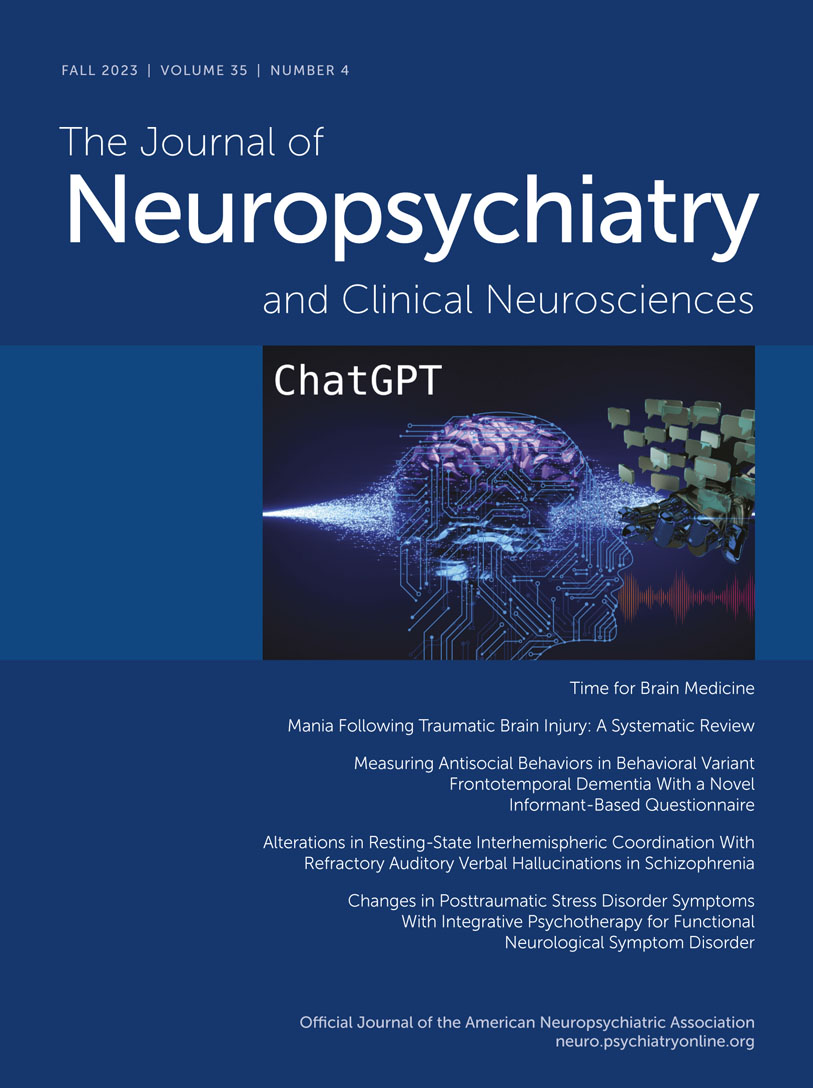Changes in Posttraumatic Stress Disorder Symptoms With Integrative Psychotherapy for Functional Neurological Symptom Disorder
Abstract
Objective:
Patients with functional neurological symptom disorder (FNSD) report high rates of traumatization and have high levels of posttraumatic stress disorder (PTSD) symptoms. Psychotherapy is a mainstay of treatment for persons with FNSD. In this study, the investigators explored changes in PTSD symptoms and health-related quality of life after psychotherapy among persons with FNSD and examined factors contributing to these changes.
Methods:
Data were prospectively collected for patients with FNSD attending a specialist outpatient psychotherapy service in the United Kingdom (N=210) as part of an ongoing routine service evaluation. Pre- and posttherapy questionnaires included self-report measures of PTSD symptoms (Posttraumatic Stress Disorder Checklist–Civilian version), depressive symptoms (Patient Health Questionnaire–9), anxiety symptoms (General Anxiety Disorder–7 scale), somatic symptoms (Patient Health Questionnaire–15), health-related quality of life (Short-Form Health Survey–36), and social functioning (Work and Social Adjustment Scale). Independent contributions to psychotherapy-related changes in PTSD symptoms and health-related quality of life were explored through multivariate analyses.
Results:
All outcome measures revealed improvements after psychotherapy (p<0.001). Psychotherapy-related changes in depression and somatic symptoms and employment status at baseline explained 51% of the variance in PTSD symptom changes. Changes in PTSD symptoms, depressive symptoms, and somatic symptoms made independent contributions to improvements in health-related quality of life (R2=0.54). Improvements were unrelated to FNSD subtype (dissociative seizures or other FNSD), age, marital status, or number of sessions attended.
Conclusions:
Reductions in self-reported PTSD, depressive, anxiety, and somatic symptoms, as well as improved health-related quality of life, were observed among patients who received one or more sessions of psychotherapy. Randomized controlled trials of psychotherapy for patients with FNSD are warranted.
Access content
To read the fulltext, please use one of the options below to sign in or purchase access.- Personal login
- Institutional Login
- Sign in via OpenAthens
- Register for access
-
Please login/register if you wish to pair your device and check access availability.
Not a subscriber?
PsychiatryOnline subscription options offer access to the DSM-5 library, books, journals, CME, and patient resources. This all-in-one virtual library provides psychiatrists and mental health professionals with key resources for diagnosis, treatment, research, and professional development.
Need more help? PsychiatryOnline Customer Service may be reached by emailing [email protected] or by calling 800-368-5777 (in the U.S.) or 703-907-7322 (outside the U.S.).



